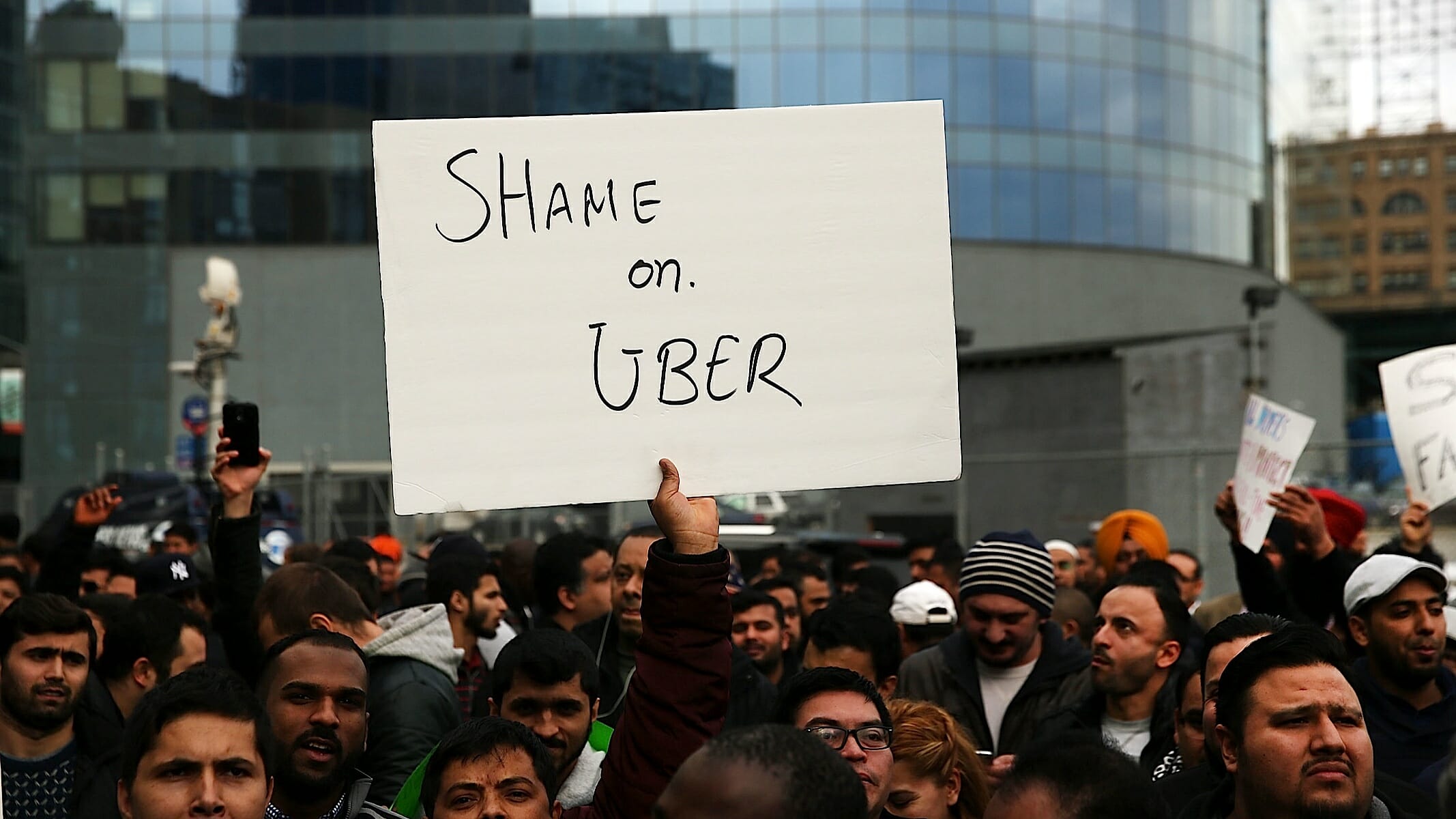Uber Drivers Needed to Strike, But They Can Only “Win” With Stronger Labor Laws
Photo by Spencer Platt/Getty Politics Features Uber Strike
In cities across the U.S. and the world, Uber drivers—along with their counterparts at other ride-hailing companies like Lyft—are engaging in a series of strikes accompanied by protests outside corporate offices. Some strikes, like the one in New York City, lasted as little as two hours, while others (Los Angeles, San Francisco) are planned for the entire day. The drivers’ complaints stem from the fact that they are independent contractors instead of full-time employees, and their treatment at the hands of the company reflects that state of powerlessness. Studies have shown that along with making an after-expenses wage of around $9.21 an hour, about a third incurred debt just for a chance to make money with Uber, since drivers have to front almost all of the costs of purchasing and maintaining their vehicles. This “debt trap” can be difficult to emerge from, and is exacerbated by low pay, high commissions per ride for the parent company, and a lack of benefits like health care, sick leave, or overtime.
Unfortunately, the reality of their status as independent contractors makes the execution of a strike more difficult. Timed just before Uber is set to go public with an IPO later this week—the company values itself at $91 billion, and its principle players are about to become very rich—the strike has generated a significant amount of media publicity, but, at least according to the New York Times, appears to be less than comprehensive.
On the strike in London:
It was unclear how many took part in the strike; cars were readily available across London on Wednesday.
On New York:
At La Guardia Airport in New York around 8 a.m., there was little evidence that the strike was having much impact. Cars driving for Uber and Lyft were picking up passengers and one airport worker said the flow of for-hire cars was typical for the time of day. Most drivers interviewed said they were either unaware of the strike, or, if they knew about it, unable to participate because they needed to earn money.
Pointing out these details isn’t meant to undermine the importance of the strike, or even its efficacy in reaching a wide audience through publicity, but only to showcase the inevitable lack of solidarity inherent to a group of non-unionized “freelance” workers. It’s possible that they can wring some concessions from the parent company, and indeed Uber has made some superficial offers recently, including cash bonuses for over a million drivers (there are approximately four million Uber drivers in the world). But the same forces that have placed an obstacle in the way of any attempts to unionize also ensured that Wednesday’s strikes were organized mostly on a local level without any way to guarantee widespread participation. And indeed, the strike can only be effective insofar as it demonstrates an economic impact—without that, company executives and Wall Street know they can outlast any PR blowback, just as they did with the #DeleteUber movement in 2017.
What these drivers really need, of course, is legislation from the government that makes these exploitative practices illegal. The strikes raises awareness of the key issues, which is a crucial starting point, but it also illustrates the weakness of a labor movement in the absence of a protected union. Justice for these drivers will likely never come from the benevolence of Uber itself, which is a capitalist institution obeying capitalistic principles of competition and profit. It will come from the widespread acknowledgement that this kind of treatment is wrong, which will then fuel legislative action on local, state and federal levels. And the truth is that the strike’s impact is limited by the absence of those protections. In other words, the true effects of this strike will not likely be felt when Uber goes public on Friday, but will hopefully be another piece of pressure in the campaign for societal change that eventually brings them the dignity and protection they deserve.